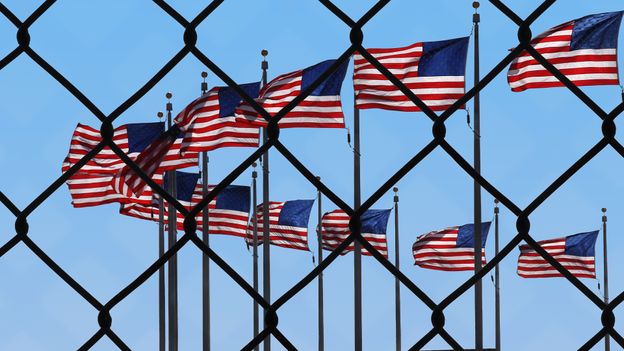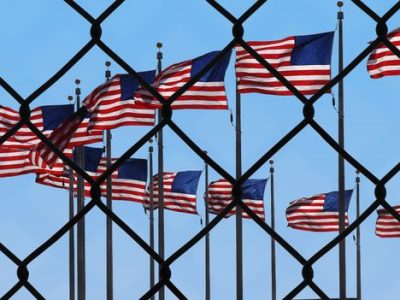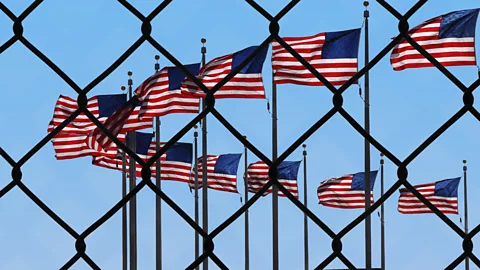 Getty Images
Getty ImagesAs the list of nations issuing travel warnings to the US grows, some visitors are opting to spurn it entirely. Here’s what that could mean for the US and its citizens.
The cold shoulder has been particularly noticeable from the US’s northern neighbour, Canada, which sends more than 20 million visitors to the country per year – more than any other nation. In response to Trump’s proposed tariffs and repeated threats to annex the nation, former prime minister Justin Trudeau recently urged his fellow Canadians: “Now is the time to choose Canada,” adding, “it might mean changing your summer vacation plans to stay here in Canada.”
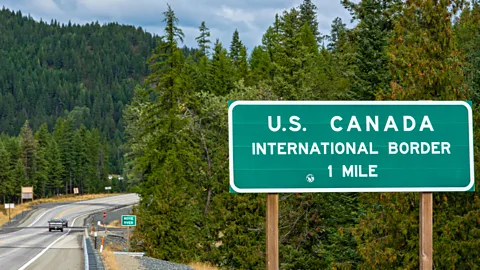 Alamy
AlamyThe appeal seems to have caught on, as many infuriated Canadians are now boycotting US holidays. In February, border crossings were down by more than 20%, according to Statistics Canada. The US Travel Association estimates that even a 10% reduction in Canadian visitors could result in $2.1bn in lost spending and 14,000 job losses.
While some Canadians are snubbing the US because of policy changes, others say they simply don’t feel as safe as they once did.
“My partner and I decided not to go ahead with our planned vacations to the US this year,” said Canadian travel journalist Kate Dingwall. “I worry about the border and getting stuck somehow, especially with how prickly Trump is to Canada. There’s just a sense of uneasiness around visiting America at the moment.”
Keith Serry, a writer and comedian based in Montreal, Quebec, cancelled five April appearances in New York City (including four shows at the upcoming New York City Fringe festival) due to the tense political situation.
“This decision will, of course, rob me of the opportunity to share my art with many of you in New York I’ve grown to know and love,” he wrote on his Facebook page. “That said, the honest truth is that I just don’t feel safe travelling to the States right now. In addition, I feel a powerful disinclination to spending my money in any way that might aid the economy of a hostile state.”
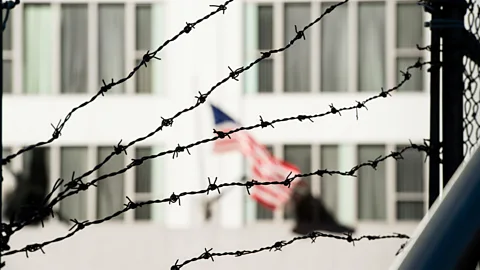 Alamy
AlamyIn recent months, some Canadians have faced tougher border security than ever before – even those with clean records and valid documents. One woman made international headlines as she was detained by ICE for two weeks in reportedly bleak conditions after her visa was revoked.
“We’re a country that prides itself, imperfectly but intentionally, on values like inclusion, equity and human rights. When those values feel out of step with what’s happening across the border, it becomes harder to justify participation,” said Amar Charles Marouf, a Canadian citizen who works as a curator at the World Economic Forum. “The political climate raises broader questions. What kind of treatment are we normalising? What assumptions are being made about who is welcome and who isn’t?”
It’s not that Canadians aren’t traveling internationally; many are simply swapping their traditional destinations. Marouf says Mexico, South America and Europe all feel more welcoming at the moment. “California will be there when this is all over, but I just feel like there’s less risk going to Portugal instead,” added Dingwall.
Some international properties have seen a bump in traffic, directly attributable to Canadians now spurning the US. “In the last several weeks, we’ve received 10-plus leads from Canadians seeking to relocate events from the United States this summer,” said Diarmaid O’Sullivan, director of sales & marketing at Hamilton Princess Hotel & Beach Club Bermuda. “This is a mix of leisure travellers, including those planning weddings, and companies relocating business events. This represents an approximately 20% increase in forecasted revenue from the Canadian market.”
 Alamy
AlamyInterestingly, all of this is happening just as the US had been experiencing record growth in the travel and tourism sector. Marta Solingo, professor at UNLV and director of Tourism Research at the UNLV Office of economic development, points to The World Travel & Tourism Council (WTTC)’s 2024 Economic Impact Trends Report, which showed the US as the world’s top travel and tourism market. Not only did the industry achieve an unprecedented economic impact of $2.36tn in the US, but the US Bureau of Labor Statistics projections indicate that the US economy will add more than 800,000 jobs in the leisure and hospitality sector.
“Such numbers help us understand the importance of the sector in the US, showing that a decrease in tourism from top-origin countries could significantly damage the US economy,” said Solingo. “The consequences of these issues can impact both large US-based corporations, such as hotel chains, and small businesses alike.”
The change in travel patterns is already having a tangible effect on the US economy. Tourism Economics recently updated its inbound US travel forecast from a predicted 8.8% growth, to a 5.1% decline, attributing the change to “strained” travel sentiment, “sweeping tariffs” and “exchange rate shifts” making travel to the US more expensive.
“The combination of travel bans and a reduction of US travel could have a material impact on tourism and economic development,” said Jeff Le, former deputy cabinet secretary for the State of California and the state’s federal coordinator during the first Trump Administration.
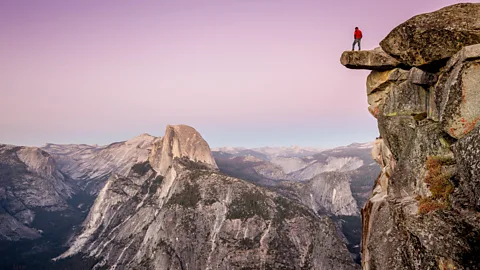 Alamy
AlamyIn California alone, international visitors provided more than $24bn in local economies in 2023, reports Le. “Losing this would likely hurt both people and local government funds,” he said. “It is harder to measure reputational loss, but I cannot imagine active boycotts help.”
While the broad impact of boycotting travel to the US could have substantial national and governmental effects, some advocacy organisations also warn that the loss of tourism dollars is most likely to be felt by individuals.
“It’s US workers and small businesses who get affected by US travel boycotts,” said Thomas F Goodwin, leader of the Exhibitions and Conferences Alliance. Goodwin notes that more than 99% of the US business and professional events industry is made up of small businesses, and more than 80% of all exhibitors are US and international small businesses. “When international business travellers forgo coming to the US, everyone from exposition booth builders and general service contractors to venue caterers and individual skilled labourers suffer – not politicians or the government. Boycotts have a knock-on effect on hotels, taxis, restaurants, local entertainers, high street commerce and more.”
There is also a cost that is harder to quantify: the global influence of American culture.
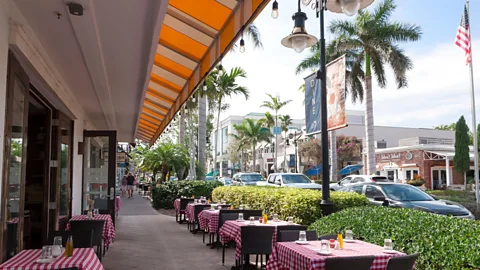 Alamy
Alamy“Visitor numbers declining in the US sends a signal that the US is losing its soft power – the influence it once held through openness, cultural leadership and global goodwill,” said Neri Karra Sillaman, entrepreneurship expert at the University of Oxford and author of the forthcoming book Pioneers: 8 Principles of Business Longevity from Immigrant Entrepreneurs. “If this trend continues, it may force tourism boards or even local governments to create counter narratives to win back trust. I am not sure if it will be effective, however, since at the end of the day, it is the policies of the government that give the ultimate direction and influence perception.”
Sillaman notes that travel boycotts also have a long-term cost to culture, the economy and overall innovation. “When academics, scientists, artists, designers and entrepreneurs start to choose other countries instead of US, the US is going to lose more than just visitors,” she said. “In the long term, it’s going to lose its competitiveness, goodwill and it will turn into a closed society that stifles growth and innovation.”
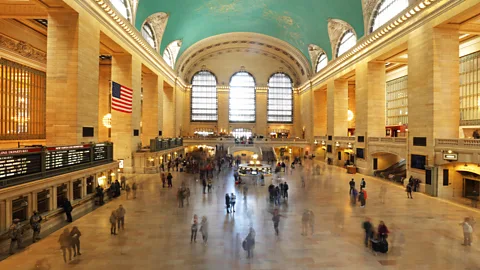 Alamy
AlamyThis human impact of boycotts also shows up in a myriad of ways, noted Missouri lawyer John Beck. “I’ve worked with hundreds of non-citizens over the last 15 years and seen firsthand how policies between governments can result in individuals – regular travellers, students, families – getting caught in the middle,” he said. “It’s rarely about the politics. It’s about missed weddings, lost business deals or being unable to visit a dying parent.”
Beck says he has worked with at least 80 clients who have either delayed or cancelled US travel due to real or perceived hostility over the past few years. This causes complications with split families, international companies who can’t move talent quickly and lost business due to the lack of ease of movement. Even though the geopolitical stakes are high, there is a human aspect on both sides of the border.
“Most Americans have little to do with the policies that frustrate global travellers,” he said. “They just want safety, fairness and dignity. That’s what we need to protect.”

